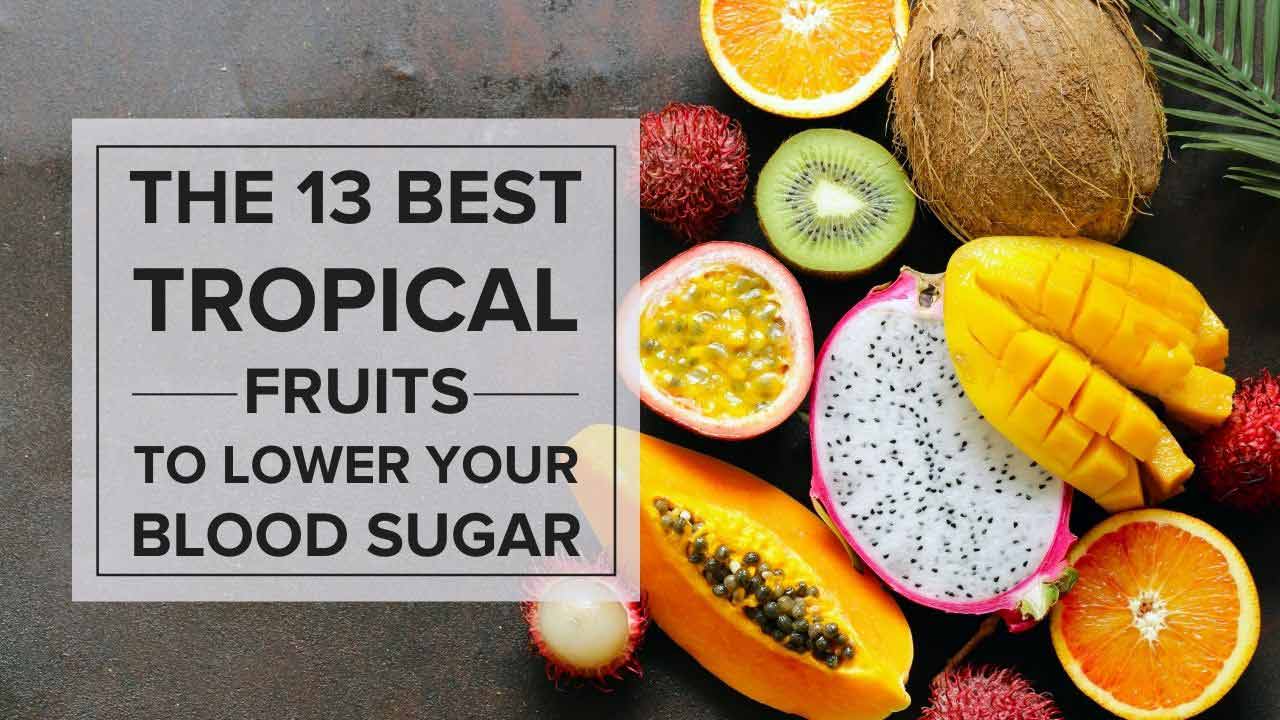
For some people, it can be hard to believe that sweet, tasty fruits could actually lower your blood sugar, but the truth is many tropical fruits are excellent for this purpose.
The Mastering Diabetes method recommends a diet of whole foods high in natural carbohydrates, to help reduce insulin resistance and stabilize blood sugar levels, and tropical fruits can be a fantastic staple.
Kiwis, mangos, oranges, bananas, papayas, dragon fruit...eating these types of fruit on a regular basis can be the foundation of conquering diabetes!
Dispelling Fruit's Bad Reputation for People with Diabetes
One of the central misconceptions behind fruits is that they are always bad for people with diabetes. At first glance this seems to make sense.
After all, most people who have diabetes are concerned about their blood sugar, so it would make sense to avoid one of nature's densest forms of natural “sugar.”
However, there is a big difference between the sugars that you find in a juicy red strawberry and in the table sugar that you might sprinkle on top.
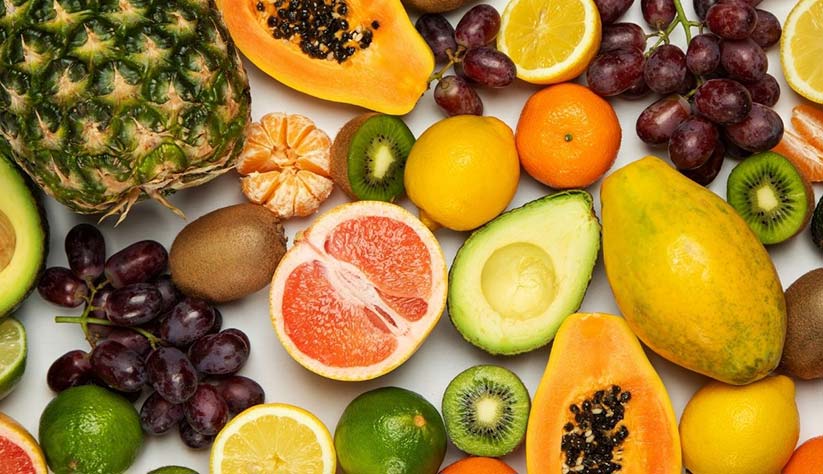
The Truth Behind Fruit's Sugars
Tropical fruits, and most other types of vegetables, contain a type of sugar called "complex carbohydrates", which are actually metabolized very differently than "simple carbohydrates" like table sugar or processed foods.
Complex carbohydrates are named that way because on a molecular scale, they are far more complex, including natural fibers and nutrients.
Not only does this mean it takes your body much longer to break them down (giving your body a chance to prepare and use the energy effectively), but these complex carbohydrates have more to offer your body as well.
This is compared to simple carbohydrates, which are processed immediately and flood into your bloodstream all at once, without offering much nutritional value.
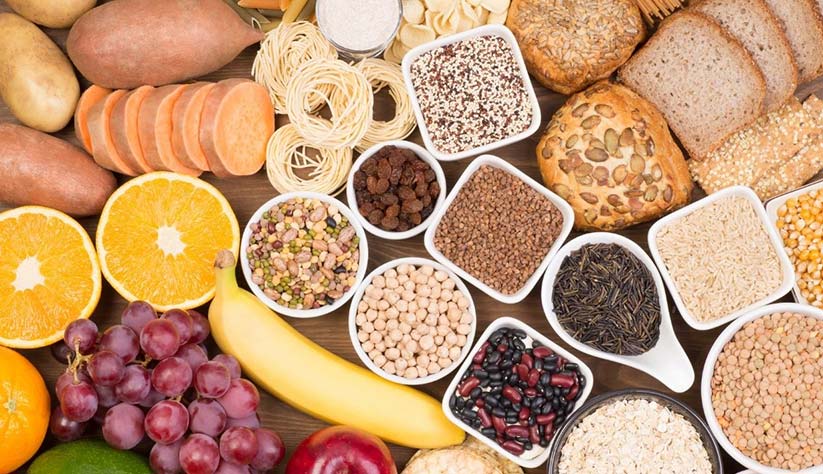
But Won't Any Sugar Still Spike My Blood Sugar?
To answer this question, we have to address something called insulin resistance, which is the buildup of excess dietary fat in tissues that are not meant to store it.
Insulin resistance is the underlying cause of type 2 diabetes (and many type 1 diabetes complications), and results in your cells refusing to accept glucose from your bloodstream. This causes the blood sugar spikes we're all so wary of.
Now, if you're very insulin resistant, any high level of sugar can spike your blood glucose, no matter where it comes from. But it's important to address the long-term effects of those foods, not just the immediate effect.
A Low-Fat, Plant-Based Diet to Reverse Insulin Resistance
Though it may seem counterintuitive at first, because fruits and other natural carbohydrates may increase your blood sugar, the answer to reversing insulin resistance is actually to avoid fats.
This is because the real roadblock keeping your blood sugar high isn't glucose (though if you're eating processed sugars, it might be), it's too much saturated fat!
So while switching to a low-fat diet high in natural carbohydrates might mean you have to be more cautious about blood glucose monitoring at first, in the long term your body will thank you.
That's why any time people ask us about specific 'diabetic friendly fruits', 'fruits for diabetics', 'low glycemic index fruits', 'can I eat fruit on my diabetes diet', and so on, we give the same answer -- as long as they're natural, that fruit salad will pretty much always help your blood sugar control in the long term.
Why Keto Doesn't Work
We get a lot of people who have had a keto diet recommended to them, because at surface level, a high-fat diet makes sense. After all, you have a high blood sugar right? So you should eat less natural sugars?
But when the underlying cause of the problem -- insulin resistance -- is too much fat, going keto to fight diabetes is just a ticking time bomb of insulin resistance.
Because the moment you try more glucose, even if it is a healthy fruit, BAM, you'll have worse spikes than ever.
Why Fruits Can Be Part of Reversing Insulin Resistance and Diabetes
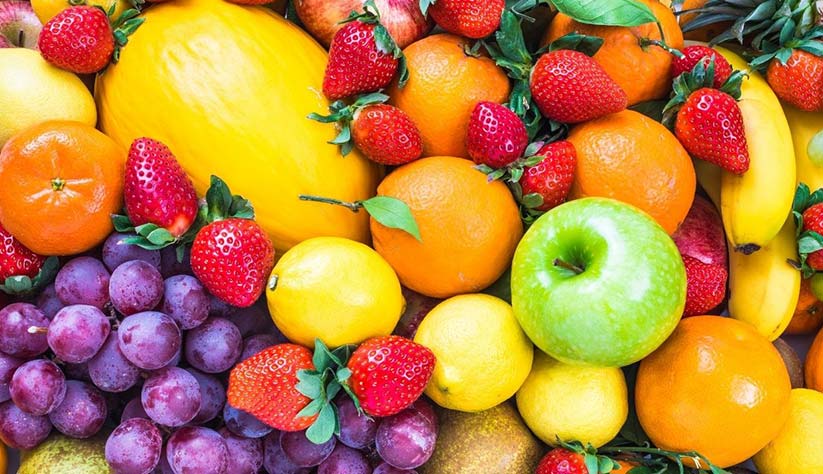
We look at temperate and tropical fruit as something that might need a bit of caution in the short term, but are the absolute foundation of building a lifestyle beyond diabetes.
After all, if you can ride the first few challenges of blood sugar spikes, and instead use plants and fruits as a natural, complex, delicious, and nutritious form of energy, you can begin the process of reversing insulin resistance.
And as your insulin resistance falls, fruits become your best friends -- a tasty, incredibly dense source of energy that you can eat without fear all day and all night! So if you're looking for low sugar fruits for diabetics, you might want to change your perspective.
And Just Look at the Results
We don't make claims like this lightly. In fact, if you'd like to learn more about our process, and see the hundreds of people who are having what we like to call "The A1c Miracle."
Celebrating Tropical Fruits -- Nature's Colorful Candy That's Great for You!
So without further ado, we'll go into some of our favorite tropical fruits, which are a tasty, nutritious, and fantastic way to get the energy that feels like cheating -- but really isn't.
Dragon Fruit
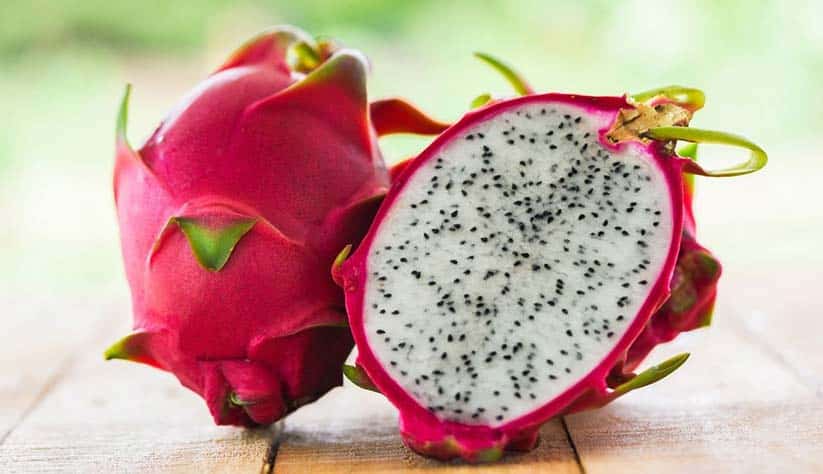
Dragon fruit, also known as pitaya, is a tropical fruit that's packed with antioxidants and fiber. Notable for its distinctive pink and white flesh, as well as its exotic green and pink exterior, dragon fruit is a great introduction to tropical fruits for the uninitiated.
Dragon fruit also has a mild flavor that you can eat as is. It's an excellent source of vitamins C and A, just to give you a little more incentive!
Dragon fruit is often served fresh with the skin removed and the pink or white flesh cut into small pieces with the bright red interior exposed for everyone to see, but can also be pureed, served up with a little bit of salt as a garnish for a fun juice, or used in a number of other ways.
The sweetness of dragon fruit makes it popular in pitaya desserts and smoothies alike, which means you can sneak even more servings of this fresh, powerful, pink sugar-fighter!
Bananas
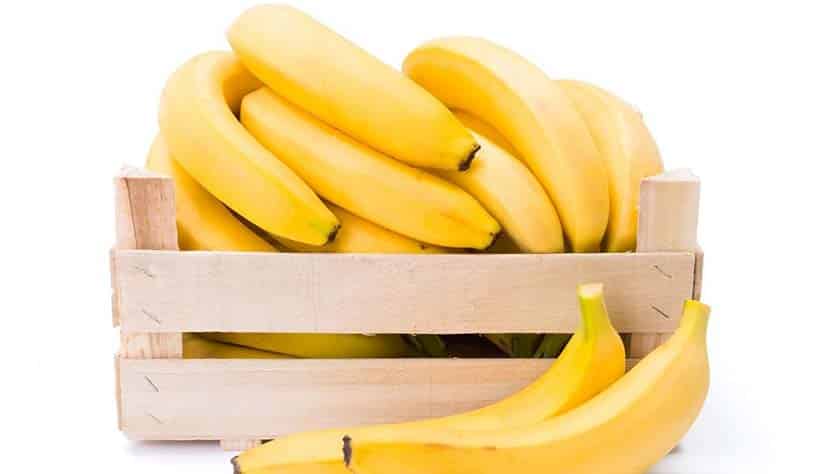
Bananas are one of the most popular tropical fruits in existence, and for good reason. Not only is it a tasty way to add natural sweetness into your diet -- without all the negative effects that processed sugars have on you -- bananas also come packed with potassium!
This essential mineral can help reduce blood pressure, which makes this fruit an important part of any diet where high blood pressure is a concern.
In our opinion, banana is best raw (without the skin of course!), but can also be baked into banana bread, mixed into banana smoothies, added to any tasty bowl, and really used to your heart's content! So ignore all those anti-fruit advocates here: if you have diabetes, eat bananas!
The Orange
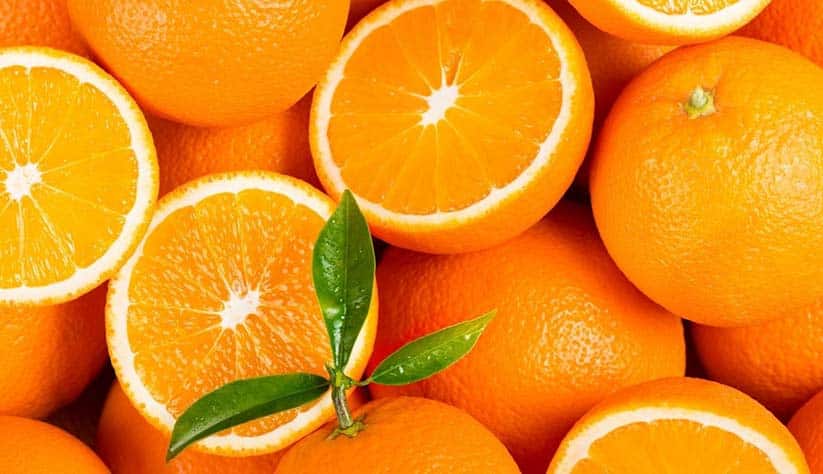
Though a little less exotic, fresh oranges are another favorite, especially in the summertime, and for good reason! They can be used as a sweet snack, they're durable thanks to their thick skin, and they have plenty of other functions to make them a must-have item.
Oranges are high in fiber, which makes this fruit a great choice if you're looking to lower your blood sugar or lose weight.
In addition to being a tasty choice, oranges can also be frozen for a healthy and refreshing treat. Just avoid a few of the sneaky treats, like orange and cream, that might slip in a little extra processed sugar, and choose natural sweeteners instead! It tastes equally delicious, we promise!
So can diabetics eat oranges? Yes, and you should!
Kiwi
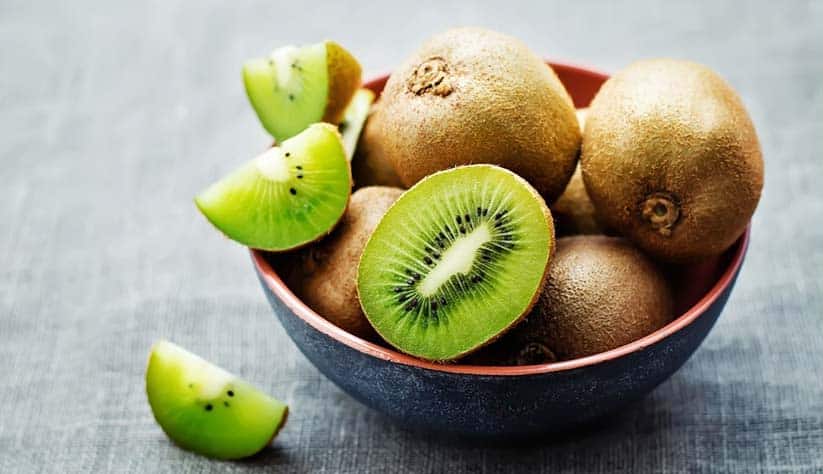
If you can't get enough of the tangy, sweet taste of orange juice in your life, then the rich green flesh of the ripe kiwi might be a good choice for you.
These little fruits are high in vitamin C and fiber -- both essential nutrients that make this fruit an awesome choice if you're looking to lower your blood sugar or improve insulin sensitivity!
Some of the most iconic kiwi recipes include raw kiwi fruit, kiwi juice, kiwi jam (with a few different berries thrown in for good measure), and of course, the classic -- sliced on top of your favorite cereal. Some people even grind up the skin and seeds and use its taste to flavor delicious cocktails! So are kiwis good for diabetics? 100%
Pineapple
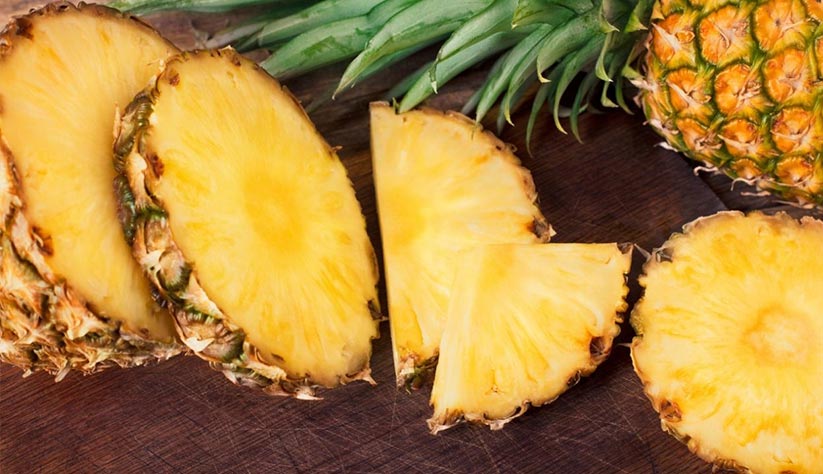
It's hard to think of tropical fruits without one of the world's most iconic, the pineapple. Long hailed as a symbol of hospitality and welcome, pineapple is full of flavor -- whether you eat it on its own, or use it as the centerpiece for your next party.
Did you know that pineapple used to be a status symbol? Well, they're more common now, and as we've learned in the past few centuries, pineapple has plentiful health benefits, including lower blood pressure and improved digestion.
While you can eat ripe pineapple on its own (and it tastes fantastic!), we also like to include it in delicious drinks, snacks, and desserts, like tropical pineapple smoothies or a tasty yogurt bowl with pineapple as the main character. Is pineapple good for diabetics? YES!
Rambutan and Lychee
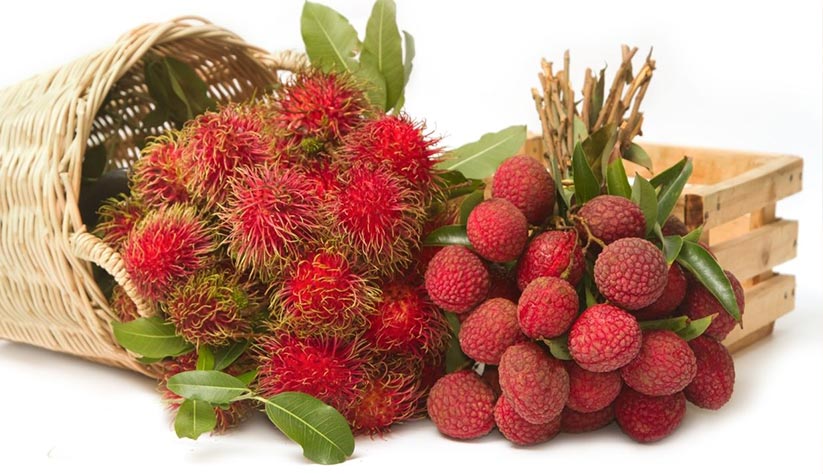
Though not on everyone's list, these fruits are another great choice for those of you looking to lower your blood sugar.
The rambutan and lychee are found in tropical climates around the world, including very commonly in Asia and Central America.
The rambutan and lychee are high in fiber and antioxidants, which can help reduce insulin resistance -- one of the main reasons that people struggle with their weight if they've got diabetes.
Rambutan is a sweet fruit that's usually served on its own or added to a dessert dish like mango sticky rice. Lychee, however, is a bit more sour and can be added to any number of dishes, including lychee curry, lychee stir fry, and salads with lychee.
But our favorite tradition, whether it's from America or Asia, is just snacking on these delicious fruits on a hot day!
Jackfruit or Durian
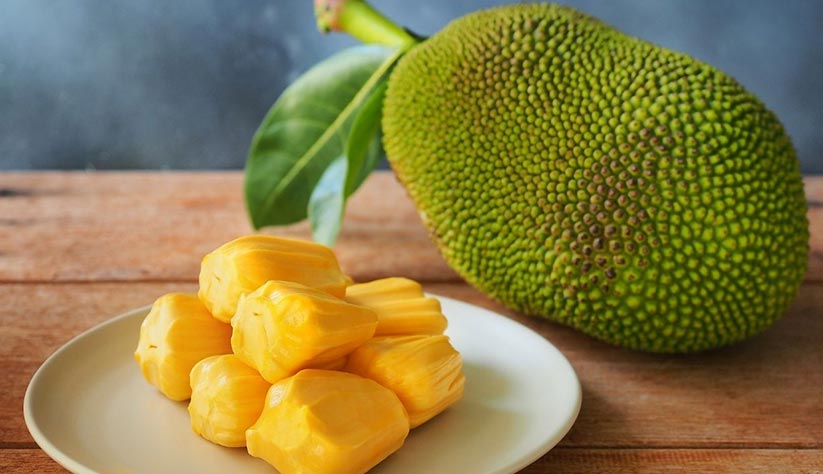
For another twist on tropical fruit, we turn to two classic meat substitutes: jackfruit and durian.
Jackfruit is native to India and is one of the world's largest fruit, with a lot to offer, including a quickly growing craze as a meat substitute! Have you seen jackfruit stir fry, jackfruit curry, even jackfruit barbecue? There's a reason!
Durian is another rising star in the plant-based world, especially among converts from meat-eaters. Native to Southeast Asia, this enormous exotic fruit is definitely an acquired taste by itself, but really shines when used in dishes.
Both jackfruit and durian are both high in fiber and protein, which makes them a great choice for anyone looking to lower their blood sugar through healthy eating habits. Though jackfruit and durian can be eaten by themselves, they really shine as meat substitutes, added into any number of dishes for an extra flavor boost.
Some people have gotten so good with these tropical fruits that you won't even miss the taste of real meat!
Papaya
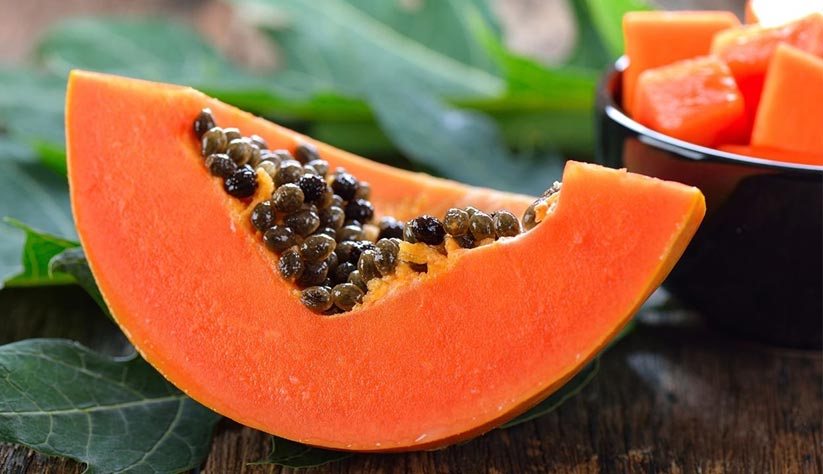
Papaya is one of the more well-known tropical fruit and has been eaten for centuries by cultures all around the world. It's also one of our favorite fruits to lower blood sugar!
The flavor of papaya is often described as a cross between mango and banana, which makes it a perfect fruit for those of you who are transitioning away from the sweets (or to help your kids make that transition).
Did you know papaya is actually an ancestor to modern day tomatoes? Well, now's as good a time as any to give this colorful fruit another try, especially because papaya is high in fiber, which helps you feel full longer -- a great choice if your carb cravings are common during late-afternoon hours or early evening.
Our favorite papaya recipes include papaya salad, raw ripe papaya with a little bit of honey, and of course, sweet papaya smoothies! No surprise there!
Coconut
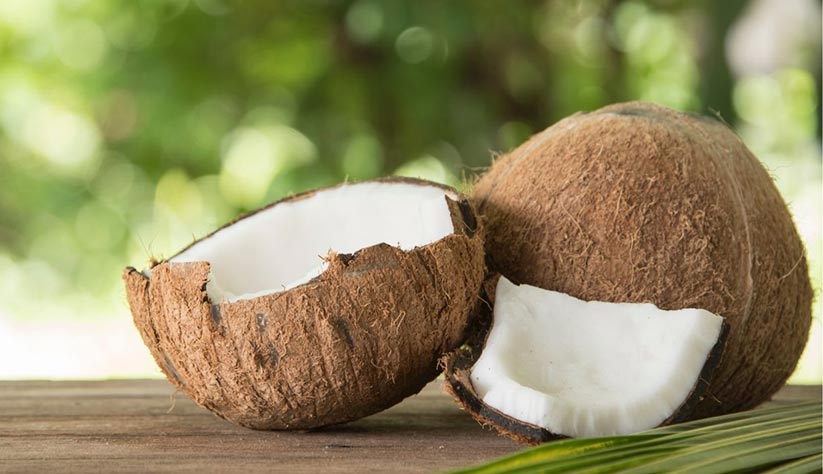
Another iconic tropical fruit is the coconut, which is native to climates around the world, including Southeast Asia and South America.
For those of you looking to lower your blood sugar, coconut is a great choice because it's high in fiber but also contains healthy fat that can help slow down digestion -- which makes it an excellent choice for diabetes-friendly snacks!
Coconut water has also been popularized recently as a health drink, and we're big fans because it's really not that different from drinking water, with a few added bonuses!
Coconut milk is another wonderful choice for those of you looking to make the transition from cow's milk because its rich creaminess can be added to coffee or tea, as well as smoothies and other recipes.
Our favorite recipes here are coconut water smoothies, coconut oil popcorn (seriously!), and the iconic central American classic, an ice cold pipa fría!
Mango
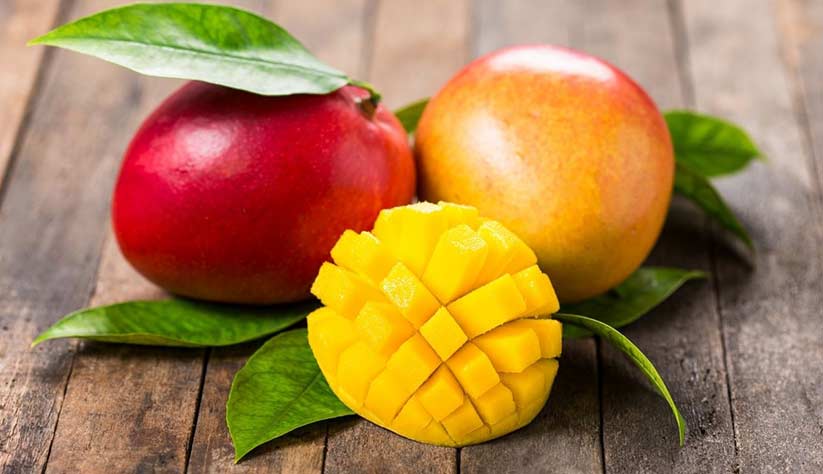
The mango has a special place in our hearts here in diabetes. After all, Mastering Diabetes was created by the Mango Man himself!
And the mango itself doesn't disappoint. In fact, it's one of our favorite fruits to lower blood sugar.
Apart from the sweet flavor of the ripe flesh-- which you can eat fresh all day as long as you peel the skin off, mango is an incredibly versatile fruit.
Sure they're high in fiber and contain a lot of Vitamin A -- which is great for eye health -- but the true flexibility of mangoes comes from their flavor, which is great in a variety of foods ranging from tacos to margaritas, from salads to curries, from salsas to sandwiches, and much much more!
A truly great fruit for a taste of the tropics!
Note: The mangosteen is not the mango, but that doesn't mean we don't recommend them! Mangosteen is native to India, and looks very different, but that won't stop us from recommending pretty much any mangosteen recipe you can find, including mangosteen juice, mangosteen powder, raw chilled mangosteen, and much more.
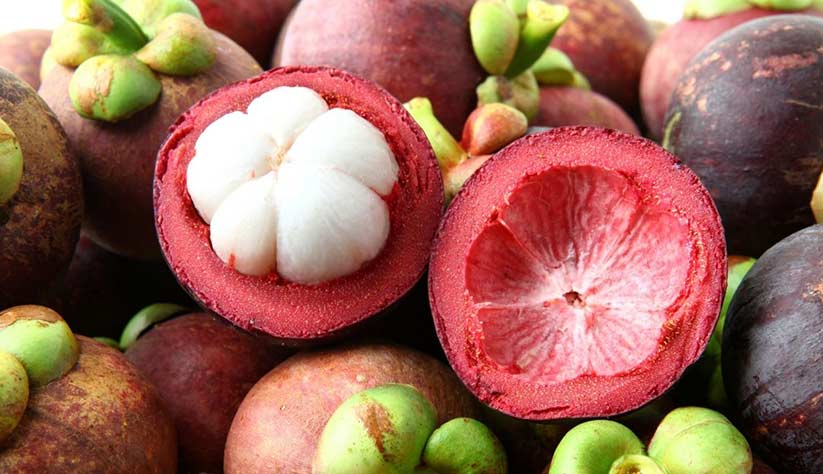
How Your Favorite Tropical Fruit Can Change Your Life!
So while a lot of people are afraid of fruit, having been told for a long time that fruit is dangerous to people with diabetes, the actual answer is much different.
In fact, if you're following a low-fat, plant-based, whole-food diet, you should feel free to enjoy fruits from the tropics (and any other part of the world) on your menu whenever you want, as long as you're just being careful to monitor your blood sugar in the early stages!
If you'd like to learn more about why we're big fans of fruit, how other people have transformed their lives, and how to start taking back over your life from diabetes, you can apply for coaching here!
Lower Your A1c and Get to Your Ideal Body Weight ... Guaranteed

Your results are guaranteed. Join more than 10,000 ecstatic members today
Personalized coaching puts you in immediate control of your diabetes health, helps you gain energy, improves your quality of life, and reduces or eliminates your meds.




